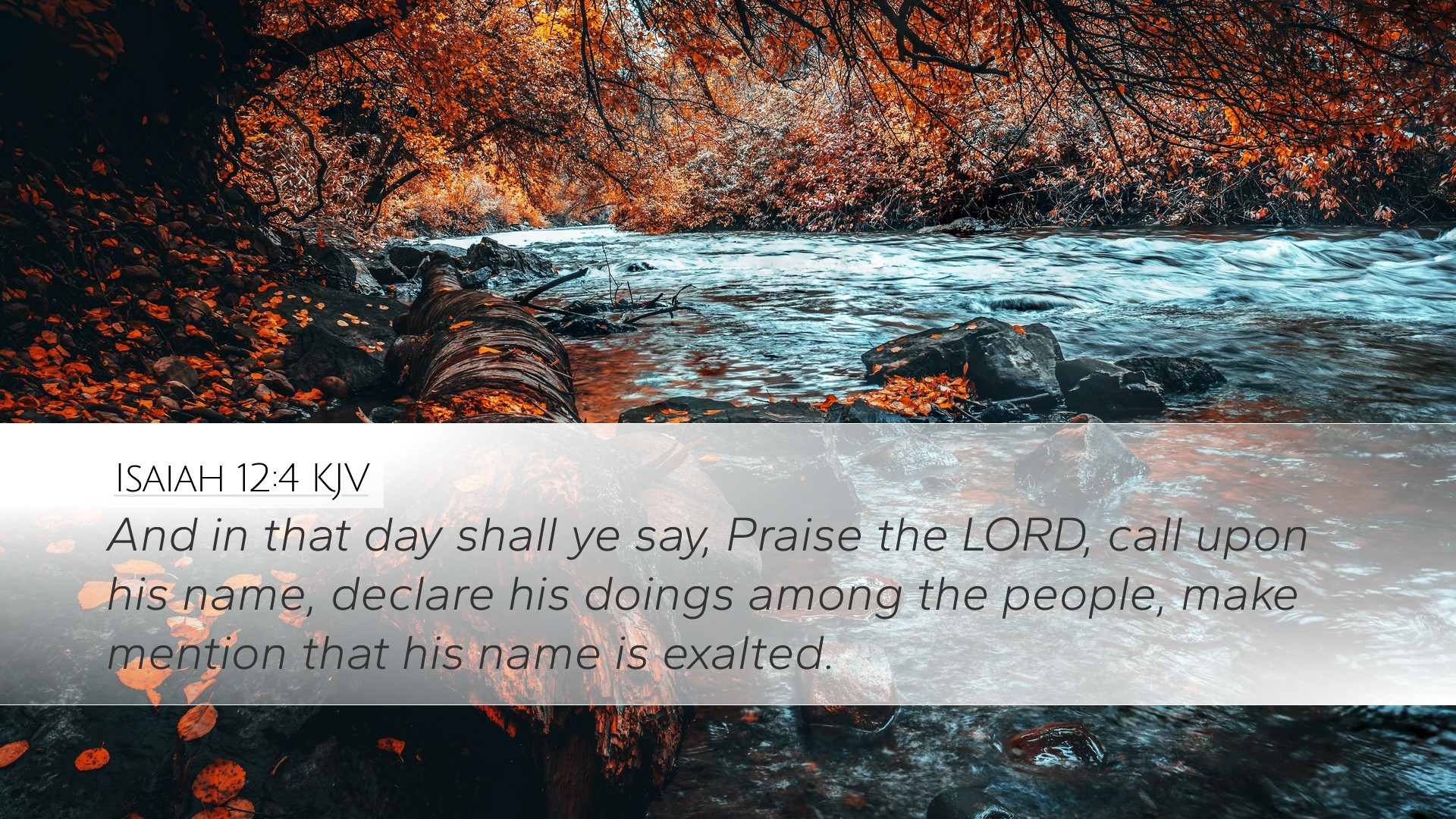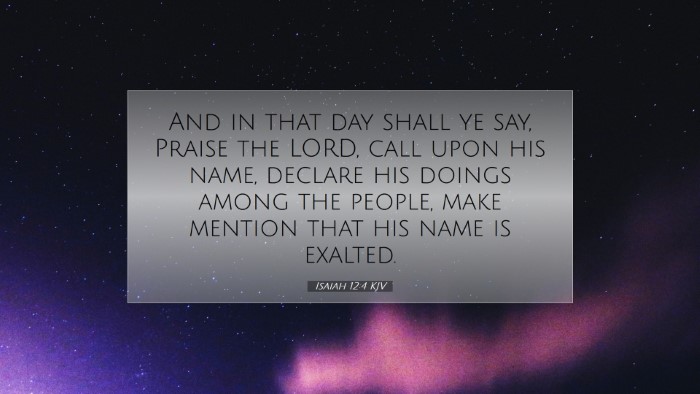Commentary on Isaiah 12:4
Verse Reference: Isaiah 12:4 - "And in that day shall ye say, Praise the LORD, call upon his name, declare his doings among the people, make mention that his name is exalted."
Introduction
The verse Isaiah 12:4 stands as a powerful declaration of worship and proclamation. It comes in the context of a hymn celebrating the salvation of Israel and the recognition of God's greatness. This passage is rich in theological meaning and provides profound insights pertinent to worship practices, evangelism, and the recognition of God's acts in history.
Exegesis and Insights
This verse can be unpacked into several key components, reflecting the intentions of the prophet and the expected response from the people of God.
-
Praise the LORD:
Matthew Henry emphasizes that praise is not merely a reaction but a duty of the faithful. It captures the heart's response to God's goodness and mercy. The call to "praise the LORD" invites believers to recognize His attributes—His love, mercy, and power.
-
Call upon His name:
Albert Barnes notes that calling upon the name of the Lord signifies prayer and reliance on God’s strength. It is an act of faith that acknowledges dependence on God’s provision and grace, inviting believers to approach Him with confidence.
-
Declare His doings among the people:
Adam Clarke highlights the importance of testimony in the community of faith. Sharing what God has done cultivates a climate of gratitude and encourages others to trust in God’s might. It serves as both a reminder of God's past faithfulness and a prompt for others to seek Him.
-
Make mention that His name is exalted:
Matthew Henry further elaborates that declaring the exaltation of God’s name speaks to His ultimate sovereignty and holiness. It affirms His position above all that exists and calls the community to acknowledge His preeminence through worship and reverence.
Theological Implications
This verse reflects a theology of communal worship and evangelism:
-
Community of Worship:
This passage demonstrates the collective aspect of worship. The exhortation to praise and declare comes as a unifying call for the people of God, highlighting that worship is a communal activity meant to strengthen the faith of the entire community.
-
Evangelistic Call:
Declaring God's doings among the people serves an evangelistic purpose. Sharing testimonies and God's acts is essential in spreading the Gospel and encouraging faith in those who may not yet believe.
-
Recognition of God’s Sovereignty:
Exalting God’s name implies a recognition of His power and authority. The act of praising God in light of His achievements serves to both reassure believers and encourage reverent awe among the wider community.
Practical Applications
For pastors, students, theologians, and scholars, this verse points to several practical applications in ministry and personal faith journeys:
-
Encouragement in Worship:
Church leaders should cultivate an environment where worship is vibrant and expressive, encouraging congregations to actively participate in praising God both individually and collectively.
-
Prayer as a Community Practice:
The importance of corporate prayer should be reinforced, guiding believers to call upon God together, increasing confidence and trust in His provision as a community.
-
Testimony Sharing:
Church communities should create platforms for sharing testimonies. This practice builds faith among believers and acts as a beacon to attract those who are searching for hope.
Conclusion
Isaiah 12:4 serves as a profound reminder of the responsibilities of believers to praise God, call upon His name, declare His wondrous works, and exalt His name in every circumstance. This verse not only encourages individual worship but also stresses the importance of community in the life of faith. The insights garnered from public domain commentaries enrich our understanding of this passage, offering a robust foundation for preaching, teaching, and living out the realities of faith in vibrant expression.


